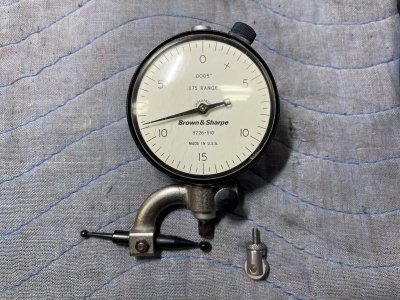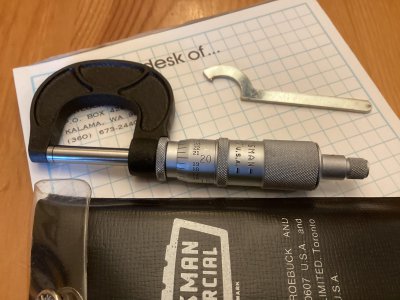- Joined
- Jan 9, 2023
- Messages
- 239
@Bone Head Tried your method on an old Brown & Sharpe .0005" I had in the toolbox and it definitely helped with the slow action. Thanks for the tip! also found a roller tip and 90 deg. attachment I forgot I had. The face was pretty scuffed up but I used a 3000 grit polishing pad followed by some plastic lens polishing compund and it cleaned up pretty nice.




